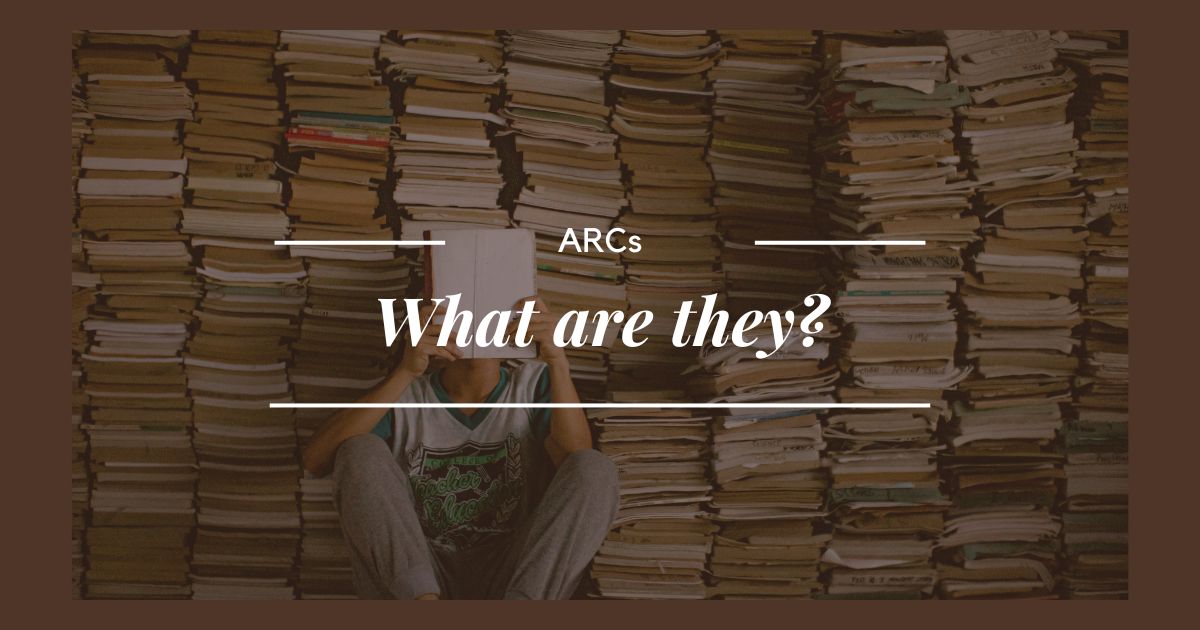If you read a lot of book reviews, you might notice a few have some variation of this sentence at the beginning or end: “Thanks to Netgalley and (insert publisher) for the free ARC. All opinions are my own.”
What is an ARC? How did that reader get one? Why is it free? Let’s dive in.
First things first: What is an ARC?
“ARC” is an acronym for Advance Reader Copy. Essentially, these are copies of a book that the publisher will gift to some reviewers for free in exchange for an honest review, usually in advance of the book’s publication date.
Giving away ARCs is a key marketing strategy in the book publishing world. Here’s why:
- When reviewers share their opinions of the book online, it generates buzz for the book before it’s even been released
- Online buzz can impact pre-orders, or at least generate name and cover recognition so that when readers see the book at the store on publication day, they might think: “I’ve seen this one recommended several times!” and are therefore more likely to pick it up
- Online reviews are a key selling point to many readers – not many will take a chance on a book with no reviews. ARCs ensure that there are reviews on key sites like Goodreads and Storygraph
Marketing a book starts way in advance of its release. By giving away copies for free, they’re ensuring that a book isn’t dead on arrival by publication day.
How do reviewers receive ARCs?
The most common starting place is Netgalley. (I’m not affiliated, by the way. This is just the ARC site I personally use – but I do believe there are others)
Netgalley is an established site where publishers grant ARCs. It costs nothing to join. After a reviewer signs up, they’re able to peruse the catalog of upcoming books – if they see a book they’d like to read, they have the option to “request” the ARC. The publisher can then decide to approve or deny the request. If they approve, the reviewer can download the book right away and start reading. There’s a section for books where no request is required; the books are available to any reviewer. This is a good place to start.
Some publishers have specific review requirements, so it’s good to pay attention to their preferences once approved.
Reviewers have a review percentage that acts like a score. If someone is granted say, ten ARCs, and leave a review for nine of them, they will have a score of 90%. It’s recommended to keep that percentage over 80%. So keep in mind, if a reviewer doesn’t review a book, it hurts their score, and publishers may be less likely to grant them an ARC in the future.
Most ARCs are digital copies, which can be read on any digital device. Some established or in-demand reviewers can ask for physical copies directly from the publisher.
Honesty is the best policy.
Keep in mind that no publisher expects reviewers to lie simply because they received the book for free. Reviewers should give their honest thoughts, even if those thoughts are not all positive.
Having a variety of reviews is a good thing. I talk about that more in my blog about negative reviews.
When I receive ARCs, I post all of my reviews to Storygraph and Goodreads. But I will only post a blog review to my website for the ones I give three stars or more.
Go check out some of my recent ARC reviews:
- The Starving Saints: Excellent fantasy horrorIn a castle under siege with the looming threat of total starvation, three women must confront and fight a supernatural takeover.
- A Drop of Corruption (Book 2): A solid sequelWhen a Treasury officer disappears into thin air, the Empire sends the eccentric Ana and her bemused assistant Din to uncover the truth – which may go deeper than they’d anticipated.
- Emily Wilde’s Compendium of Lost Tales (Book 3): The final chapterBook 3 and conclusion to the Emily Wilde trilogy.
- The Favorites: A sporty Daisy Jones & the Six10 years after her final skate, ice dancer Katarina Shaw tells her story – from her tragic childhood to her Olympic-level skating legacy, and the obsessive romance at the center of it all.
- Blood Over Bright Haven: DevastatingThe city of Tiran’s first female highmage and her indigenous lab assistant discover a horrifying secret that could destroy their city, if it doesn’t destroy them first.








